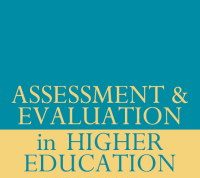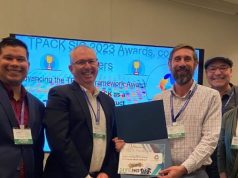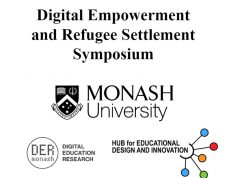Author:
Michael Henderson
Nicola F. Johnson
Glenn Auld
Phillip Dawson
 Social media, such as social network sites and blogs, are increasingly being used as core or ancillary components of educational research, from recruitment to observation and interaction with participants.
Social media, such as social network sites and blogs, are increasingly being used as core or ancillary components of educational research, from recruitment to observation and interaction with participants.
However, the new mediated relationships, and handling of data, in social media, particularly social networking sites have the potential to create ethical dilemmas for researchers. We are motivated by the concern that in our own research practices and reading of research in the field there are increasingly more complex and far reaching consequences of gaining and reporting data. Of particular concern, in many research publications the issues of researching with social media either go unaddressed or are simply conflated with the broader issues of Internet or online research despite nuanced but critical differences. This is further exacerbated by a confusion about the purpose of ethics. As Macfarlane (2010) argued:
While the fast-food worker may be required to tell the customer to “have a nice day!” academic researchers are required to state that they “kept all data confidential” or that “the identity of research subjects was anonymized.” Clichéd statements of this type represent little more than sham compliance with the audit of [research ethics committees], journal editors and reviewers, and lecturers who assess theses and dissertations. (p 22)
Over the last two years the authors have been working on developing a clearer picture of these concerns. In particular, we are guided by two key questions:
- What are the ethical concerns in researching with social media?
- How can we address those concerns? Namely, (a) do the field of research ethics and the published practices of other researchers adequately deal with those concerns? and (b) Are there frameworks of ethical and moral practice that can guide us as technologies continue to change?
In pursuing these questions we have drawn conclusions from two reviews of empirical research literature (n=140) and our own research as illustrative case-studies.
Our work has revealed a number of ethical challenges of researching with social media including: consent, traceability, working with children and young people, illicit activity, anonymity, ethical obliviousness, obscurity and concern about future privacy-invasive technologies. However, the issues are complex, multifaceted and resist simple solutions. This is in part due to changing technological landscape including ‘big data’, and increasingly powerful semantic search tools that span data sources and media.
The details of our findings can be found in our publications listed at the bottom of this page (in particular see: Dawson, 2014; Henderson, Johnson & Auld, 2013). In brief, the challenges researchers need to consider when researching with social media are:
- Consent in social media: When and how should we seek informed consent in an environment that promotes socially mediated and co-constructed texts, a sense of privacy in the crowd, anonymity through avatars, and in which personal data are increasingly leaving the control of the individual?
- Traceability: the loss of confidentiality. How can we de-identify participation in an increasingly networked, pervasive and ultimately searchable ‘dataverse’? This includes the concerns of:
- Identity and obscurity
- Breaking Promises
- Triangulating public data with confidential data
- Concern for future privacy-invasive technologies
- Expert analysis and diagnosis: Researchers have the ability to perform expert analysis, even diagnosis, upon nonsensitive public data that can produce sensitive personal information. An education example could be conjured from diagnosing dyslexia in school children from blog posts; the posts might be public but the diagnosis is private, and attributing direct quotes to dyslexia sufferers reveals sensitive information. The names and profile pictures are public, but a diagnosis is deeply personal.
- Recognising and responding to illicit or reportable activity: What is illicit activity that requires intervention when in a socially mediated environment?
The above challenges can be further explored the relevant articles, and forthcoming work. A key feature in approaching this topic is to disentangle ‘real’ research ethics from ‘compliance’. In doing so, we promote a dialogic, reflexive process whereby researchers think deeply about the ethics of their work, engage openly with their peers in conversations about it, and engage in an ongoing conversation with participants.
References
- Dawson, P. (2014). Our anonymous online research participants are not always anonymous. Is this a problem? British Journal of Educational Technology, 45(3), 428-437.
- Henderson, M., Johnson, N. F., & Auld, G. (2013). Silences of ethical practice: Dilemmas for researchers using social media. Educational Research and Evaluation, 19(6), 546-560.
- Macfarlane, B. (2010). Values and virtues in qualitative research. In M. Savin-Baden & C. H. Major (Eds), New approaches to qualitative research: wisdom and uncertainty (pp. 19–27). Oxon: Routledge.
Additional reading
- Auld, G., & Henderson, M. (2014). The ethical dilemmas of social networking sites in classroom contexts. In G. Mallia (Ed.), The Social Classroom: Integrating Social Network Use in Education (pp. 192-207). The Netherlands: Information Science Reference.
- Henderson, M., Auld, G. & Johnson, N. F. (2014). Ethics of teaching with social media. Paper presented at the Australian Computers in Education Conference 2014, Adelaide, SA.
About the authors:
Dr Michael Henderson is a member of the LNM group and a senior lecturer in Educational Technology in the Faculty of Education, Monash. His profile can be found here.
Dr Nicola F. Johnson is a member of the LNM group and a senior lecturer at Federation University Australia. Her profile can be found here.
Dr Glenn Auld is a Fellow of the LNM group and a senior lecturer at Deakin University. His profile can be found here.
Dr Phillip Dawson is a research Fellow of the LNM group and a Lecturer in Learning and Teaching, Office of the Pro Vice-Chancellor (Learning and Teaching) at Monash University. His profile can be found here.







